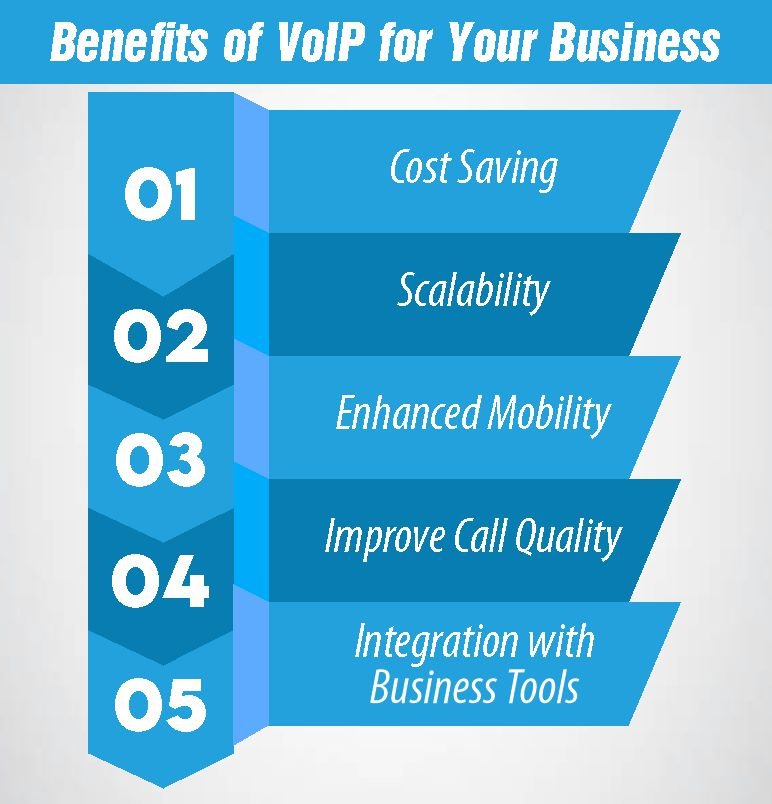Did you know that phone bills can be reduced up to 60% by firms using VoIP technologies?
The majority of the proprietors know about VoIP solutions but actually have no idea what they are or how they assist. That lack of knowledge holds them back in systems costing more and doing less.
That’s where Dialer Portal steps in. We make it simple. Our VoIP solutions use your internet to make and manage calls—no big bills, no hard setup.
Let’s clear the fog around VoIP solutions and show you how they can actually help your business work smarter. Scroll down to learn more.
What Is VoIP?
VoIP refers to Voice over Internet Protocol. Essentially, it allows you to place calls across the internet rather than through the traditional phone lines. You don’t have wires or a phone company to create the connections—merely a reliable internet connection.
As you talk on your phone, your voice is converted to digital signals by VoIP. They go across the internet and to the receiver. It can be utilized on smartphones, computers, or dedicated VoIP phones.
Consider how the WhatsApp or Zoom apps allow you to dial up individuals. VoIP accomplishes the very same thing—except it’s for business. That’s where your company VoIP comes in. You get more control, better features, and lower costs than regular phone services.
How It Works
VoIP converts your voice into digital signals. These signals are routed over the internet to the other person on the call. It’s quick, convenient, and sounds exactly like a regular phone call.
When someone asks how VoIP works for business, the answer is simple—it uses your existing internet to handle all calls. You don’t need landlines or expensive hardware. Just plug in a VoIP phone or use an app, and you’re ready to talk.
For example: multi-person marketing teams use laptop computers and headsets to make client calls.

Benefits of VoIP for Your Business
Switching to VoIP gives your business a smart way to save money and stay connected. It’s flexible, full-featured, and operates in your workplace. Whether you have a physical store or a distributed workforce, VoIP accommodates you.
Cost Saving
One of the largest reasons companies switch to VoIP is for cost. Phone systems traditionally are expensive to install, maintain, and they have very high monthly charges. With voip cheap phone service, you get more for less.
For example, a small business using VoIP could pay $15 per month per user, compared to $50 or more with standard phone lines. And there are no extra charges for long-distance or overseas calls. That is a huge saving to businesses trying to keep expenses down.
Scalability
As your business grows, your phone system should grow with it. That’s where your business VoIP solution shines. You can create or remove users, set up new departments, or create remote offices—without ever needing to call in a technician.
This makes VoIP a perfect choice for startups and expanding teams. It’s flexible, fast, and does not require significant modifications to your infrastructure.
Enhanced Mobility
VoIP provides your workers with the ability to work from anywhere. They can answer and place calls from home, the office, or traveling using a laptop, tablet, or smartphone.
Remote teams love this. It keeps everyone connected without needing desk phones. That’s why more companies are turning to the largest VoIP providers in the USA—they want strong, mobile-ready platforms that support today’s hybrid workstyle.
Advanced Features
VoIP is packed with functionalities to get your business sounding professional and operating better. A few of them are call forwarding, voicemail to email, auto-attendants, video conferencing, and so on.
And here’s the best part—many of these features come standard, even with voip cheap phone service. You get enterprise-class features without an enterprise-class price.
A VoIP specialist can help install such features as per your business needs.
Improve Call Quality
Concerned about call quality? With a reliable internet connection, VoIP is clearer than standard phone lines. No static, no dropped calls—just clear, seamless communication.
If you’re wondering what a voip caller is, it simply means that somebody is calling you over the internet. And with VoIP technology these days, that call is likely to be crystal clear, as long as you join up with a good company.
Integration with Business Tools
Among the brilliant aspects of VoIP is its interaction with other applications. You can integrate it with your helpdesk, email, CRM, or calendar applications. What this does is reduce tool-switching and promote productivity.
For instance, the caller’s details are already presented on your screen when they make a call. That is the level of seamless interaction your business VoIP can provide with correct configuration.
Key Features of VoIP for Businesses
VoIP is not just an incoming call thing—it’s an entire communications system for your business. It provides you with intelligent tools to stay connected, serve customers more effectively, and work remotely. These features make VoIP perfect for growing teams.
Call from Anywhere
With VoIP, your staff can receive and make calls from a VoIP phone, laptop, or smartphone—wherever they may be. As long as they have internet access.
This makes your VoIP company system perfect for remote workers, freelancers, or traveling employees. They are always connected whether they stay at home or are on the go.
Call Forwarding and Voicemail to Email
Missed call? No issue. VoIP infrastructures can relay calls to another number or simply stream voicemails directly into your email.
That way, you never miss vital messages, even when you’re not at your workstation. It’s one of those smart features that make voip cheap phone service way more powerful than it sounds.
Auto Attendant & IVR
VoIP lets you install an auto attendant—a virtual receptionist who directs callers to the right person or department. IVR (Interactive Voice Response) systems enable callers to select options from their phone keypad.
It gives your small business a big-company feel. Many of the largest VoIP providers USA include this feature to help manage call flow easily and professionally.
Video Calls and Messaging
Need more than voice calls? VoIP also encompasses team messaging and video calling. You can talk in person, share news, and stay connected—all from one roof.
This enables quicker, more intimate day-to-day communication. A VoIP expert can assist with installation that’s suitable to your group’s requirements, whether you possess one office or ten offices.
VoIP vs Traditional Phone Systems
When comparing VoIP to traditional phone systems, the difference is clear. One is flexible and modern. The other is old, bulky, and costly.
Traditional landlines need wires, desk phones, and tech support. They cost more to install and maintain. Every time your business grows or moves, you deal with new hardware or rewiring.
On the other hand, VoIP solutions work over the internet. No phone lines, no technician visits. You can make calls from a computer, tablet, or mobile phone. It’s that simple.
Cost is another big factor. With voip cheap phone service, you pay far less than with a standard landline plan. You also receive additional features—such as call recording, voicemail to email, or auto attendants—that would be more expensive on a basic system.
Need help making the switch? A voip specialist can help you set up fast and pick a plan that fits your team.
That’s why more businesses today are choosing VoIP—especially when using trusted names like your company VoIP or the largest VoIP providers USA.
How Much Does VoIP Cost?
One of the biggest reasons businesses switch to VoIP is the price. It’s much more affordable than traditional phone systems. With voip cheap phone service, some plans start as low as $10 to $20 per user each month.
You don’t need to buy bulky equipment or pay setup fees. Just use your existing internet and devices. Many providers offer free apps, softphones, and even free calling features.
The total cost depends on what your business needs. Basic plans are great for small teams. Larger companies might want advanced tools like call analytics or CRM integrations—which may cost more.
Want to grow later? No problem. Your company VoIP can scale with you—add new users or features without big upgrades. A voip specialist can guide you through what works best and help avoid paying for tools you won’t use.
Who Should Use VoIP?
VoIP solutions fit any company that wishes to save, be smart, and remain connected—regardless of the location of the team.
Small companies which require a basic, affordable telephone system can utilize voip cheap phone service. It allows them to appear professional for minimal cost.
The convenience is being enjoyed by the remote workers. They can accept calls via laptops or cellphones, at home, at a coffee shop, or on the road. Your business VoIP network allows anyone to be connected without having to report to the workplace.
Customer service agents adore the upscale features. Auto attendants, call directing, and real-time calls make it easy to handle huge call volumes.
Conclusion
VoIP is not just a method of calling—it’s an intelligent business resource. It makes you save cash, enables you to work anywhere, and stay connected with clients and employees. From small shops to growing teams, VoIP solutions offer features that old phone systems just can’t match.
With features such as voip cheap phone service, robust tools, and quick scaling abilities, it isn’t surprising that companies are increasingly switching over. For increased flexibility, improved call quality, or seamless integration, VoIP provides all those—and more.
Dialer Portal makes changing easy. Our VoIP experts will assist you in selecting the optimal plan, install your system, and answer all your questions—big or small.
Call us now and we’ll help you design the perfect VoIP solution for your business. Visit Dialer Portal and take the first step toward smarter communication.
FAQ’s
What does VoIP caller mean?
The VoIP caller meaning is someone making a phone call using the internet instead of a regular landline. It’s faster, cheaper, and more flexible.
Is VoIP cheaper than traditional phones?
Yes. With voip cheap phone service, you can save a lot—especially on long-distance and international calls. There are no hidden fees or hardware costs.
Can I use VoIP for my company?
Absolutely. Your company VoIP system can be set up in minutes and customized to your team’s size and needs. It’s great for any type of business.
How does VoIP work for business?
It sends voice calls through your internet instead of phone lines. That’s why how does VoIP work for business is often answered with one word: efficiently.
Who are the largest VoIP providers in the USA?
Some of the largest VoIP providers in the USA include RingCentral, Nextiva, and Vonage. But there are also great options like Dialer Portal for small businesses.
Do I need special equipment to use VoIP?
No. You can use a computer, smartphone, or VoIP phone. A good internet connection is all you really need.

